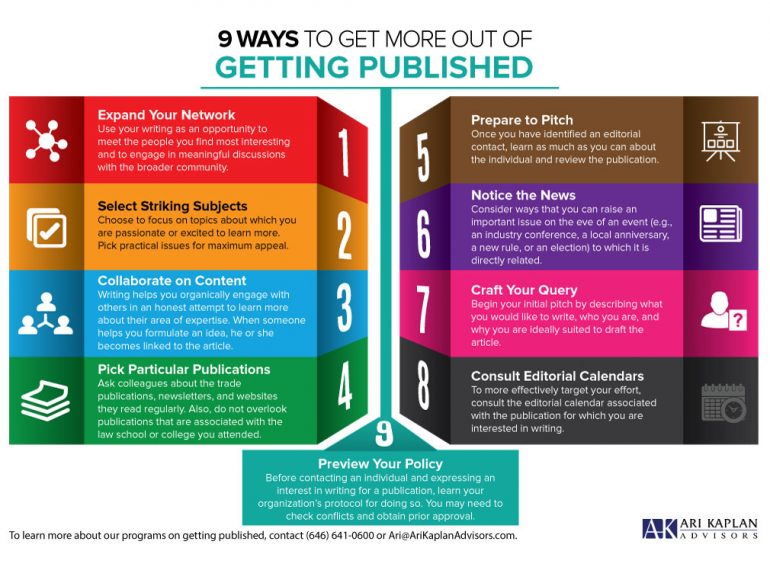When I was a first-year associate, the partner with whom I worked wanted to meet a prominent, newly appointed government official. But, he had no reason to reach out and no familiar contacts. At the time, we were co-authoring a column for a trade publication. So the partner suggested that we request an interview for our next article — and it worked!
Over the past two decades, writing has been my most valuable technique for genuinely networking with peers and prospects:
- Writing offers you the chance to engage individuals who are outside of your daily routine — or with whom you are particularly interested in developing a connection.
- It also provides a tangible expression of your interest in, and commitment to, a particular subject.
Unfortunately, most prospective writers think they cannot spare the time, maximize the value of their investment, or get their work published.
Things to Consider About Getting Published
The infographic below offers nine considerations for publishing, including studying editorial calendars (a 2019 set is available on my website), reviewing your firm’s policies and preparing persuasive pitches.
You Might Also Like …
- “10 Advanced LinkedIn Strategies for Lawyers” by Ari Kaplan
- “Be a More Effective Speaker” by Ari Kaplan
- “Top Writing Tips for the Busy Author” by Susan Kostal
- “Write Like People Read” by Chris Graham
Illustration ©iStockPhoto.com
Subscribe to Attorney at Work
Get really good ideas every day for your law practice: Subscribe to the Daily Dispatch (it’s free). Follow us on Twitter @attnyatwork.


















